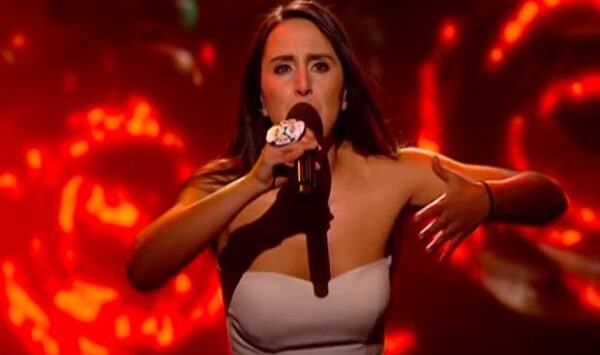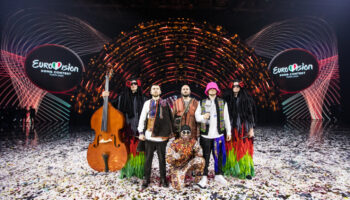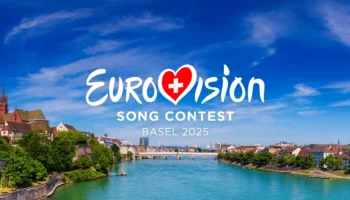The entry for the Eurovision Song Contest 2016 that Ukraine selected on Sunday has made headlines all across Europe. The lyrics have been deemtared too political by some, and the discussion still echoes.
Ukraine chose the singer Jamala and her entry 1944 in its national final for the upcoming Eurovision Song Contest. The lyrics tell a dramatic episode in the History of the 20th century and they are considered too politically-loaded by some sources.
The History
Susana Jamaladinova is the full name of the Ukrainian representative in this year’s Eurovision Song Contest. The artist, who performs under the stage name of Jamala, is a Crimean Tatar.
The Crimean Tatars were deported in 1944 (around 250000 people) following orders of the General Secretary of the Communist Party of the Soviet Union and Chairman of the USSR State Defense Committee, Joseph Stalin, who accused the Tatars of collaborating with the Nazis. This event is called Sürgün in Crimean Tatar.
Most of the them were deported to Uzbekistan and they would not be allowed to return until the mid 1980s.
The song
The Ukrainian entry is titled 1944, the year when the deportation of Crimean Tatars took place. That terrible year changed forever the life of one fragile woman, my great-grandmother Nazylkhan. Her life was never the same, explained Jamala before the national final. Nazylkhan had four sons and one daughter who were deported with her. The girl died during the journey and she could not be buried.
As reported by La Vanguardia, Jamala, who was born in Kyrgyzstan, further explained that this is my story, the history of a people such as my grandmother told it to me. The singer returned to Crimea after the independence of Ukraine in 1991.
The artist also told the AFP news agency that I needed that song to free myself, to release the memory of my great-grandmother, the memory of that girl who has no grave.
The controversy
The polemic is shaking the media, based on what has been published.
BBC indicated that the song stirs up political tensions as it comes two years after the annexation of Crimea by Russia, although the song does not mention it. Still, according to independent.co.uk, the entry could raise the issue by implication, as the Crimean Tatars say that oppression against them has increased after the annexation.
It has been stated that the title of the song, 1944, is clearly a reference to the Sürgün. The lyrics add up to the controversy about the political implications of the Ukrainian entry.
The rules of the Eurovision Song Contest state that no lyrics, speeches, gestures of political or similar nature shall be permitted. This rule led to the disqualification of the Georgian entry in 2009, We don’t wanna put in, as it was considered that it mocked the Russian Prime Minister. Other songs needed modifications like the Ukrainian Razom nas bahato in 2005, as the original version had been the anthem of the Orange Revolution the previous year. The Armenian Don’t deny last year had the title changed to Face the shadow as it was believed to refer to the mass killings of Armenians during World War I.
The question has been raised, though there is no report yet of any action from any party.
Jamala was chosen in the Ukrainian national final to represent the country in the Eurovision Song Contest 2016 with 1944.




